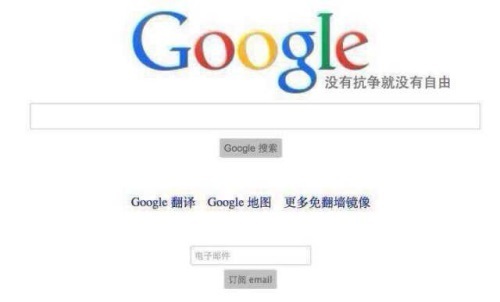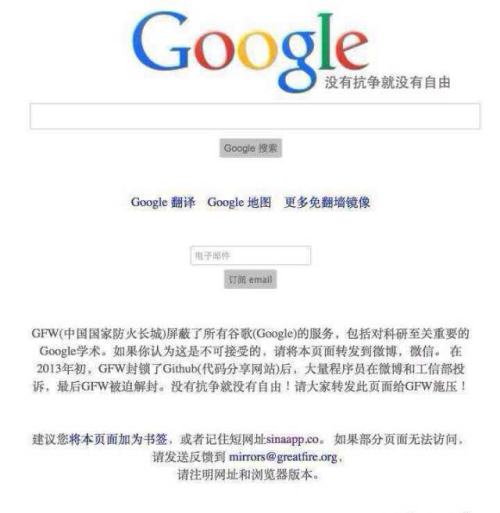It’s been a tough couple of days for Internet users in China. We’ve all become used to no Youtube, no Facebook and no Twitter, but the Net Nanny has at least left more vital services alone, such as email. That has changed in the last few days as China, with unrest in full swing in North Africa, has begun clamping down on what can be accessed online. Yes, it appears leaders have a severe case of the jitters and when that happens, the people inside Zhongnanhai tend to take a conservative stance.
Two major developments have occured; the first is that wildly popular (especially among laowai) email provider Gmail has had intermittent service the last few days. Some users said they couldn’t access their Gmail accounts, others couldn’t send mail, and others couldn’t mark emails as unread. Google itself finally chimed in yesterday, as reported by the Guardian:
“Relating to Google there is no issue on our side. We have checked extensively. This is a government blockage carefully designed to look like the problem is with Gmail,” said a Google spokesman. China’s embassy in Washington was not immediately available for comment.
The announcement follows a blog posting from Google on 11 March in which the firm said it had “noticed some highly targeted and apparently politically motivated attacks against our users. We believe activists may have been a specific target.” The posting said the attacks were targeting a vulnerability in Microsoft’s Internet Explorer web browser. The two firms have been working to address the issue. At the time, Google declined to elaborate on which activists had been targeted or where the attacks had been coming from.
The second major development is that China is beginning to knock out access to VPNs, also known as Virtual Private Networks, or the precious tool that gives us access to Youtube. For those unfamiliar with VPNs, they effectively mask your computer’s IP address (the unique ID given to every device accessing the Internet) and gives it a generic IP address which appears to be from somewhere else, such as the United States. If your computer appears to be in the US, you get two benefits: you can see all the websites behind the Great Firewall, and also have access to US-only services such as Pandora, Hulu and Netflix. Right now, reports on Twitter indicate that Witopia, a popular VPN, and 12vpn are both inaccessible in Mainland China, however this can change minute-by-minute.
One VPN you can try (which still works, at least for me) is Strong VPN. (No, I’m not affiliated with them, although I did find out about them through a friend of mine’s blog.) It’s the best VPN I’ve used thus far, but also a bit pricey. But there are many to choose from, as you can see in this list.
It’s hard to gauge how long the crackdown will last. If I’m a betting man though, knowing how scared China is of any potential unrest, I wouldn’t expect to see Facebook or Twitter unblocked anytime soon, and we can only hope that Gmail will eventually be fully freed.
If you have other VPNs to recommend, please leave them in the comments below.
 If you’ve thought that the VPN on your iPhone hasn’t been working properly in China lately, it’s not just your imagination. Virtual private network provider Astrill said on Wednesday that iOS devices that use VPN protocols IPSec, L2TP/IPSec and PPTP are not accessible in China right now. So far, it’s just iOS devices like iPhones and iPads that are affected. Astrill VPNs on MacBooks still work.
If you’ve thought that the VPN on your iPhone hasn’t been working properly in China lately, it’s not just your imagination. Virtual private network provider Astrill said on Wednesday that iOS devices that use VPN protocols IPSec, L2TP/IPSec and PPTP are not accessible in China right now. So far, it’s just iOS devices like iPhones and iPads that are affected. Astrill VPNs on MacBooks still work.














